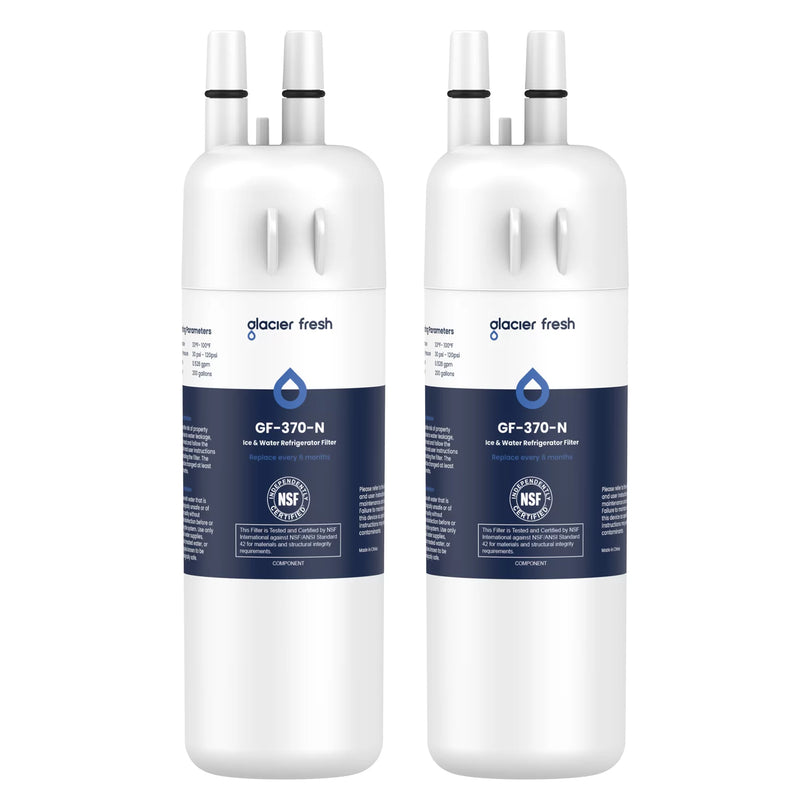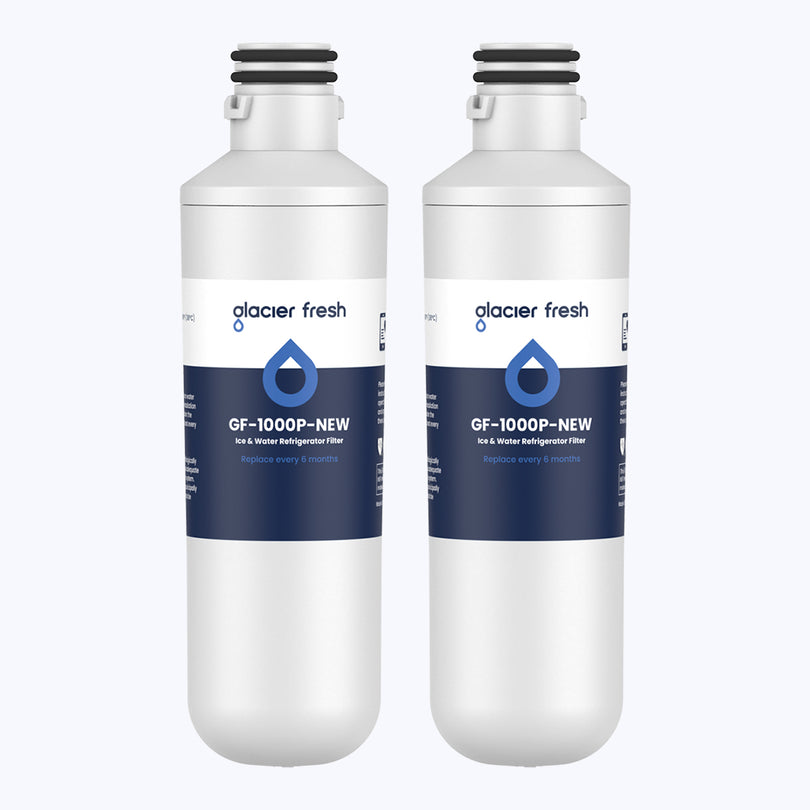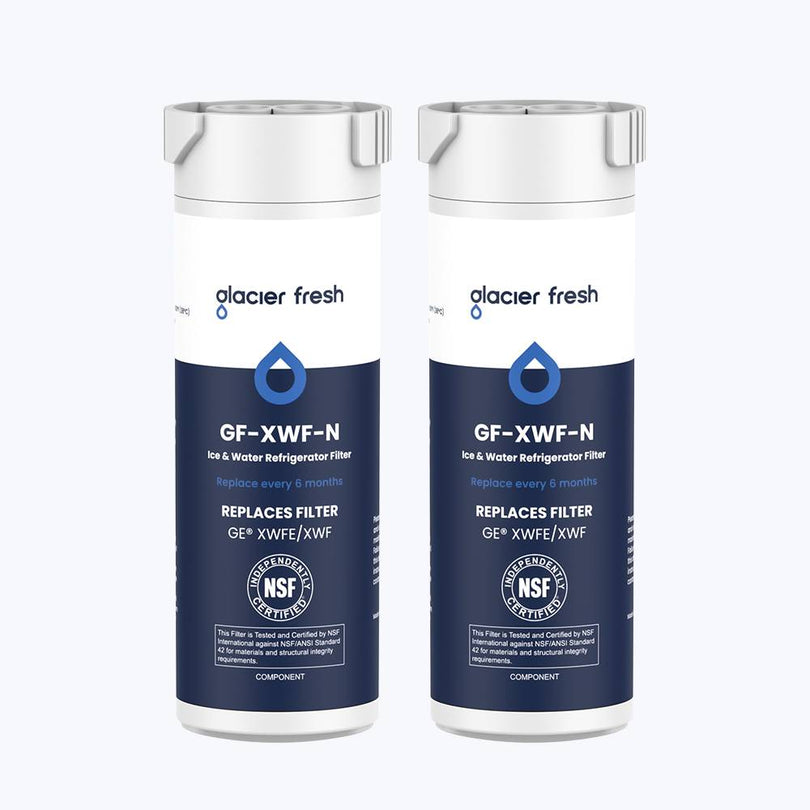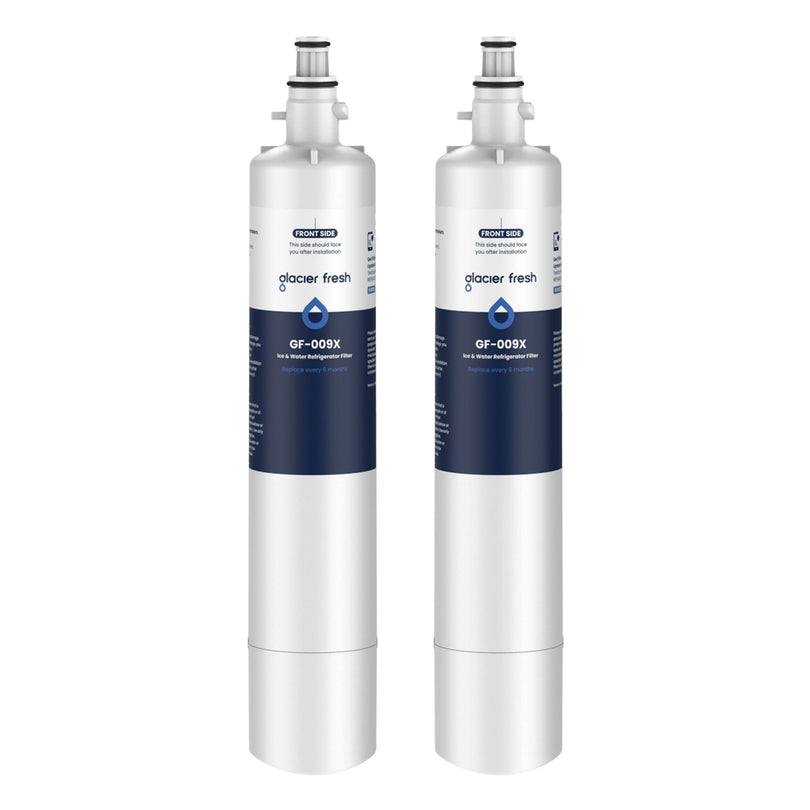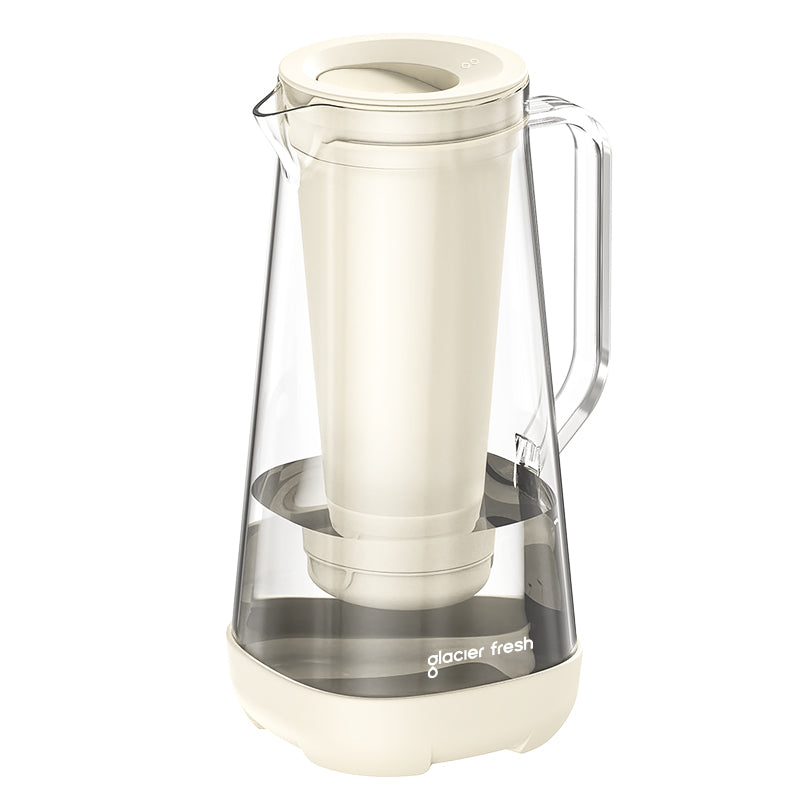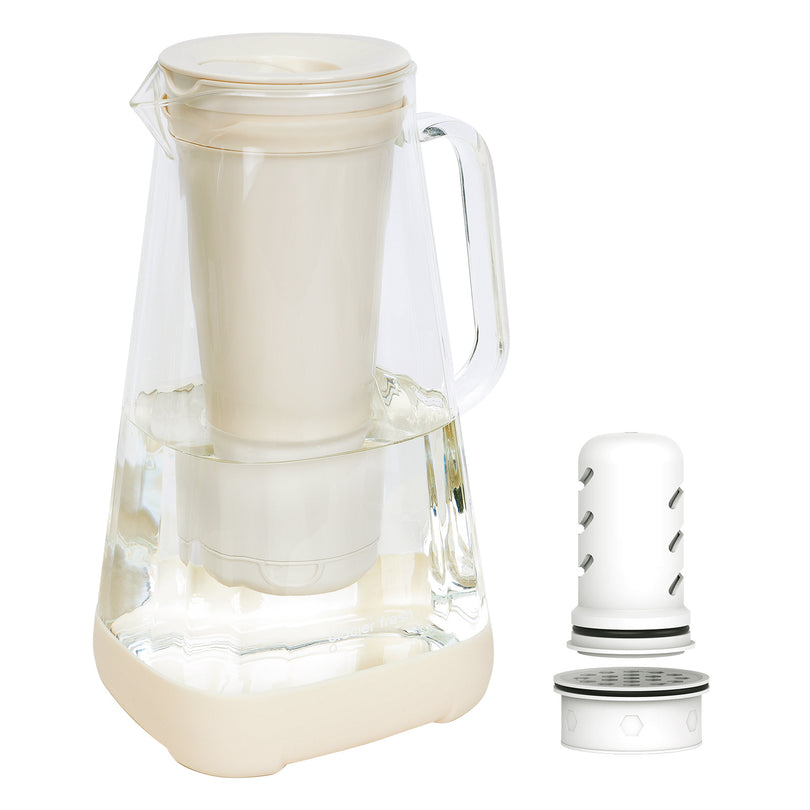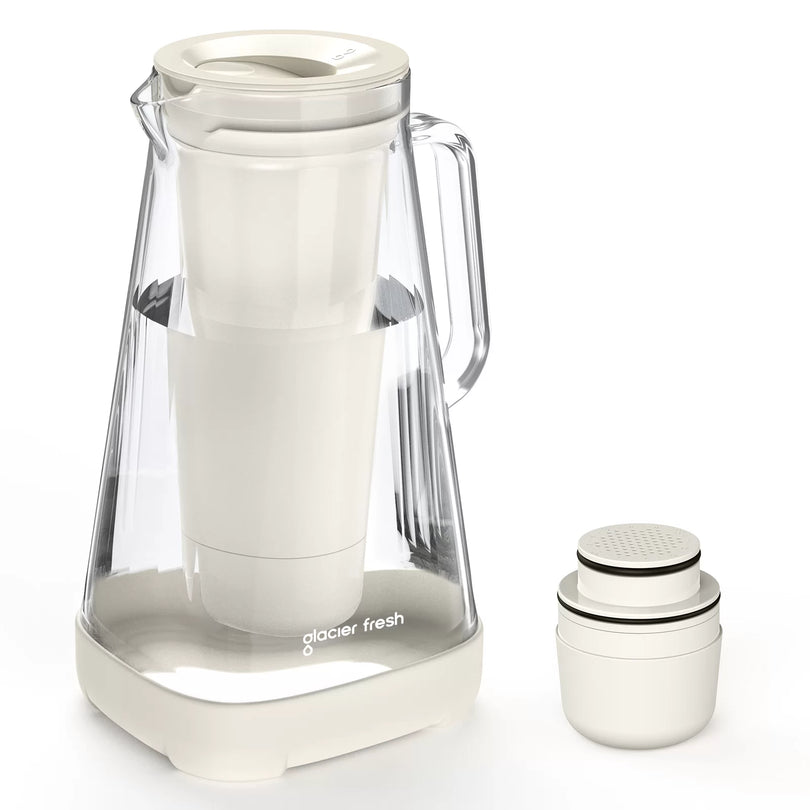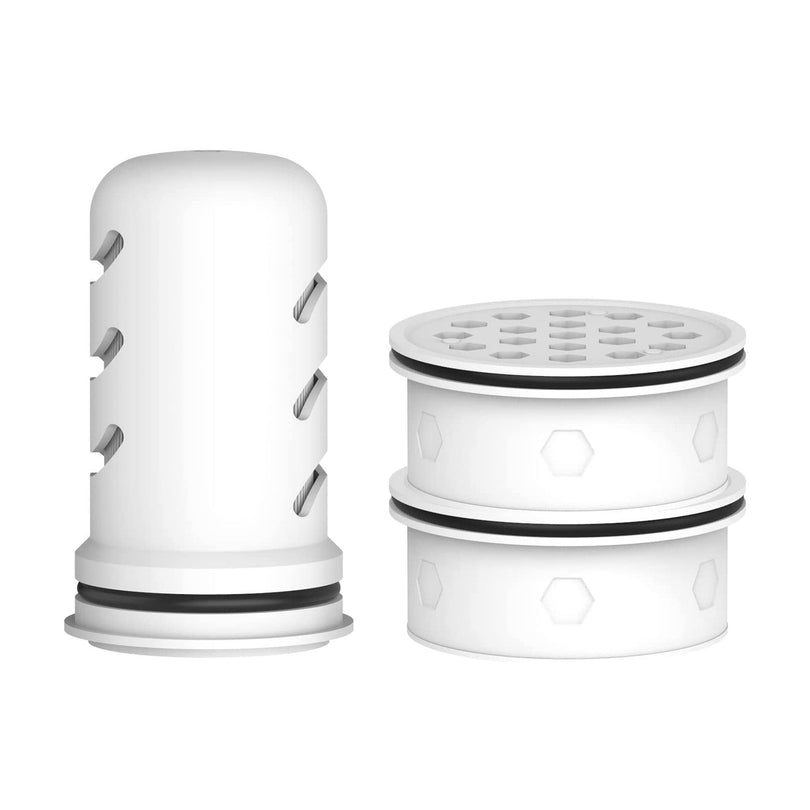Table of Contents:
Wie wirken sich saisonale Veränderungen auf die Wasserqualität aus?
Häufige Wasserverunreinigungen im Frühling und Sommer
Warum ist eine Wasserfilterung im Frühling und Sommer unerlässlich?
Beste Filtermethoden für saisonale Wasserqualität
Tipps zur Aufrechterhaltung der Wasserqualität im Frühling und Sommer
Abschluss
Die Wasserqualität ist entscheidend für die Gesundheit und ein angenehmes Leben das ganze Jahr über. Frühling und Sommer bringen jedoch besondere Herausforderungen mit sich, die die Sauberkeit und Sicherheit Ihres Wassers beeinträchtigen können. Saisonale Veränderungen, von starken Regenfällen bis hin zu steigenden Temperaturen, erhöhen die Wahrscheinlichkeit, dass Verunreinigungen in Ihre Wasserversorgung gelangen. Daher ist die Wasserfilterung in diesen wärmeren Monaten unerlässlich.
In diesem Blog untersuchen wir, wie sich jahreszeitliche Veränderungen auf die Wasserqualität auswirken, auf welche häufigen Schadstoffe man achten muss und wie wichtig die Verwendung geeigneter Filtermethoden ist.
Wie wirken sich jahreszeitliche Veränderungen auf die Wasserqualität aus?
Frühling
Der Frühling bringt starke Regenfälle, schmelzenden Schnee und steigende Temperaturen mit sich. Diese Umweltveränderungen können eine Vielzahl von Verunreinigungen in Ihre Wasserversorgung bringen:
- Erhöhter Abfluss: Regen trägt Pestizide, Düngemittel und Abfälle in Flüsse, Seen und Stauseen.
- Schneeschmelze: Durch das Schmelzen von Schnee werden häufig Mineralien, Sedimente und andere Verunreinigungen aus der Umgebung in die Wassersysteme freigesetzt.
- Algenblüte: Mit steigenden Temperaturen beschleunigt sich das Algenwachstum, was manchmal zu schädlichen Algenblüten führt, die die Wassersicherheit und den Geschmack beeinträchtigen können.
Sommer
Die Sommerhitze macht die Aufrechterhaltung der Wasserqualität noch komplizierter:
- Stehendes Wasser : Höhere Temperaturen fördern das Bakterienwachstum in Reservoirs und stehenden Wasserquellen.
- Erhöhter Verbrauch: Im Sommer steigt der Wasserverbrauch für Haushalt, Pool und Bewässerung sprunghaft an, was die Wassersysteme belastet.
- Dürrebedingungen: Niedrige Wasserstände können Schadstoffkonzentrationen verursachen, was die Wasseraufbereitung erschwert.
Häufige Wasserverunreinigungen im Frühling und Sommer
Im Frühling und Sommer treten verstärkt verschiedene Schadstoffe auf, darunter:
- Bakterien und Krankheitserreger: Warmes Wetter und Abfluss erhöhen das Vorkommen schädlicher Bakterien wie E. coli und Salmonellen.
- Algen und Giftstoffe: Algenblüten können bei wärmerem Wetter Giftstoffe wie Microcystine freisetzen, die ernsthafte Gesundheitsrisiken bergen.
- Sedimente und Ablagerungen: Regen und schmelzender Schnee wirbeln Schmutz und Sedimente auf, wodurch die Klarheit des Wassers beeinträchtigt wird und Systeme möglicherweise verstopft werden.
- Pestizide und Chemikalien: Düngemittel und Chemikalien aus der Landwirtschaft und Rasenpflege gelangen häufig in die Wasserversorgung.
- Schwermetalle : Hohe Temperaturen können das Auswaschen von Metallen aus Rohren oder dem umgebenden Boden verschlimmern.
Warum ist eine Wasserfilterung im Frühling und Sommer unerlässlich?

Die Wasserfilterung ist für die Aufrechterhaltung sauberen und sicheren Wassers während dieser Jahreszeiten von entscheidender Bedeutung.
- Verbesserter Geschmack und Geruch: Saisonale Verunreinigungen können den Geschmack oder Geruch des Wassers unangenehm machen. Durch die Filterung werden diese Verunreinigungen entfernt und Ihr Wasser bleibt frisch.
- Gesundheitsschutz: Filter beseitigen schädliche Bakterien, Viren und Giftstoffe, die in den wärmeren Monaten häufiger vorkommen.
- Verbesserte Klarheit: Sedimente und Ablagerungen werden effektiv entfernt, sodass das Wasser optisch ansprechend und sicher zum Verzehr ist.
- Verhinderung von Kalkablagerungen: Durch die Filterung werden Rohrleitungen und Geräte vor Kalkablagerungen geschützt, die durch Mineralien verursacht werden, die häufig im Wasser der Frühlings- und Sommerversorgung vorkommen.
Beste Filtermethoden für saisonale Wasserqualität
Um die Herausforderungen der Wasserverschmutzung im Frühling und Sommer zu bewältigen, sollten Sie diese wirksamen Filtermethoden in Betracht ziehen:
- Aktivkohlefilter: Perfekt zum Entfernen von Chemikalien, Chlor und organischen Verbindungen.
- Umkehrosmosesysteme (RO) : Hocheffizient beim Herausfiltern von Bakterien, Schwermetallen und Sedimenten.
- UV-Filter: Ideal zur Desinfektion von Wasser durch Eliminierung schädlicher Mikroorganismen.
- Filtersysteme für das ganze Haus: Sorgen für eine umfassende Filterung des gesamten Wassers, das in Ihrem Haus verwendet wird, vom Trinkwasser bis zur Bewässerung.
Tipps zur Aufrechterhaltung der Wasserqualität im Frühling und Sommer

Um die Wasserqualität während dieser Jahreszeiten aufrechtzuerhalten, sind proaktive Maßnahmen erforderlich:
- Regelmäßige Filterwartung: Tauschen Sie die Filter häufiger aus, um der erhöhten Schadstoffbelastung gerecht zu werden.
- Überwachen Sie lokale Berichte zur Wasserqualität: Bleiben Sie über die lokalen Wasserbedingungen informiert, insbesondere bei starkem Regen oder Dürre.
- Verwenden Sie Poolfiltersysteme: Stellen Sie sicher, dass das Poolwasser sauber und berührungssicher bleibt.
- Saubere Wasservorratsbehälter: Desinfizieren Sie Wassertanks, Fässer und Zisternen regelmäßig, um Bakterienwachstum zu verhindern.
Abschluss
Frühling und Sommer bringen aufgrund von Umweltveränderungen und erhöhtem Kontaminationsrisiko besondere Herausforderungen für die Wasserqualität mit sich. Filterung ist in diesen Monaten nicht nur Luxus, sondern eine Notwendigkeit, um sicherzustellen, dass Ihr Wasser sicher, sauber und angenehm bleibt. Wenn Sie die saisonalen Auswirkungen auf die Wasserqualität verstehen und die richtigen Filtermethoden wählen, können Sie Ihre Gesundheit und Ihr Zuhause schützen und gleichzeitig die warmen Monate genießen.
Machen Sie die Wasserfilterung in diesem Frühjahr und Sommer zu einer Priorität, um Ihre Familie die ganze Saison über sicher und hydriert zu halten! Folgen Sie Glacier Fresh , um weitere Wasserfilterlösungen zu entdecken.

